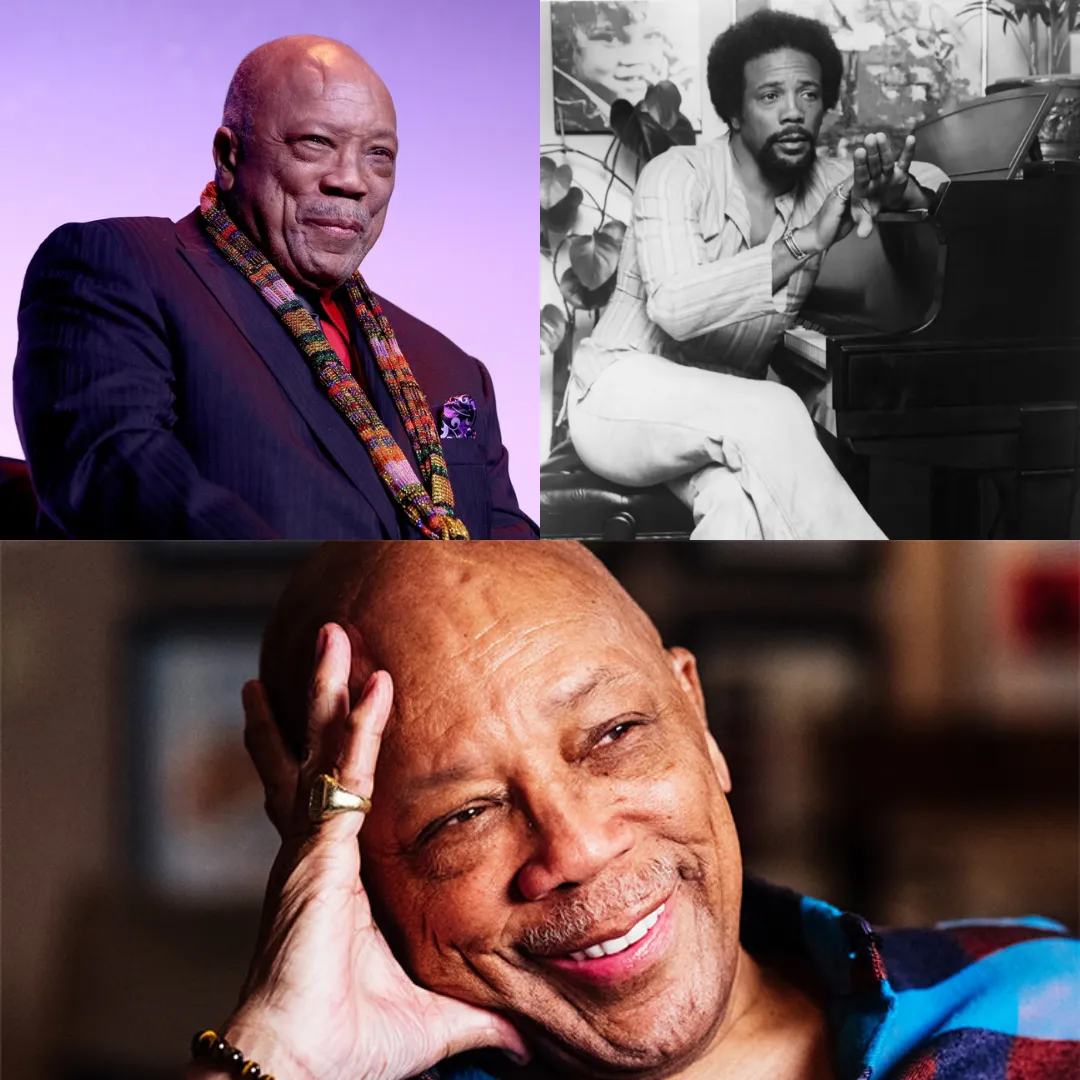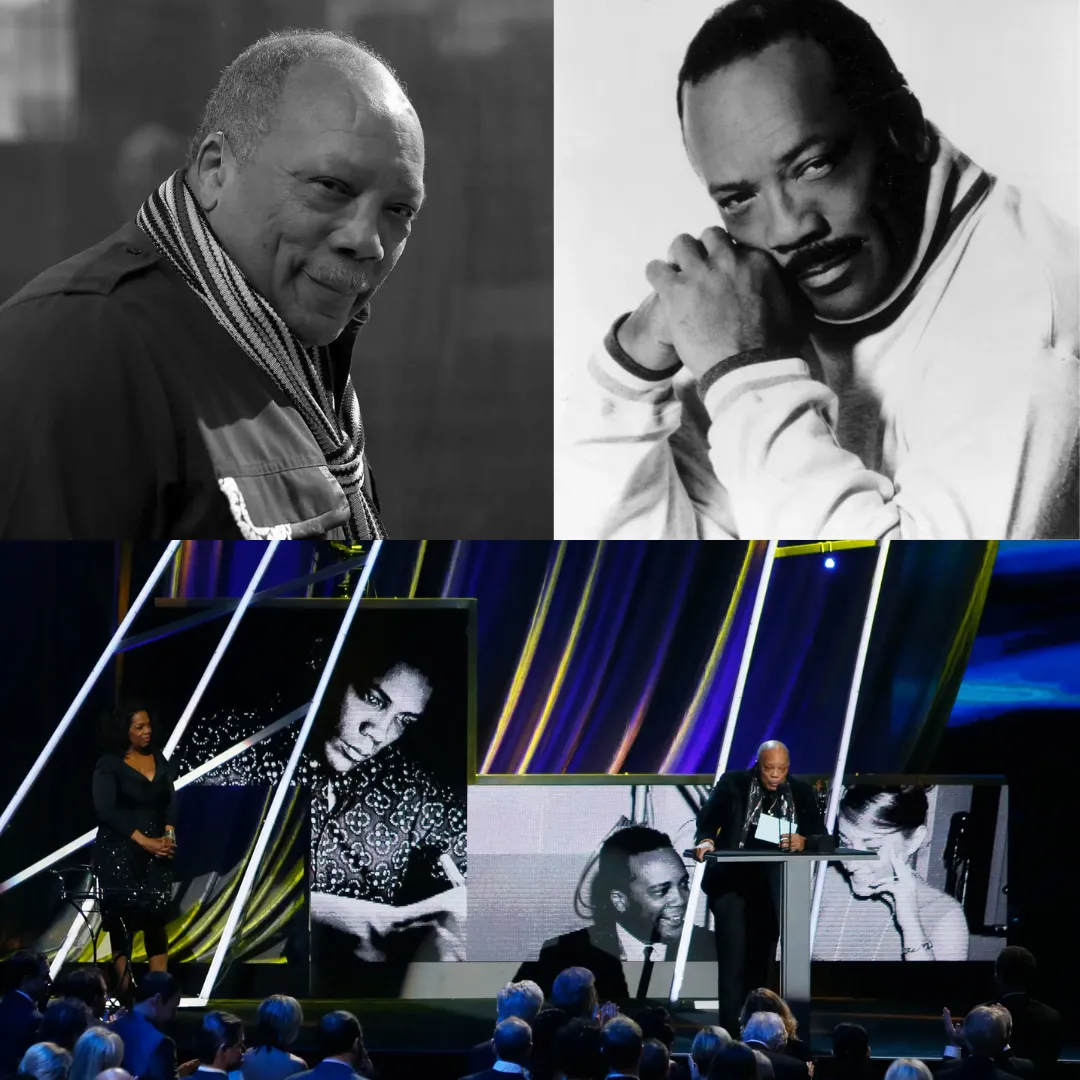The man behind Michael Jackson’s greatest hits has passed – who was he?

Legendary Music Producer Quincy Jones Dies at 91, Leaving an Unmatched Legacy
Quincy Jones, the groundbreaking producer and composer behind Michael Jackson’s Thriller—the best-selling album in history—passed away at his Bel Air home on Sunday night at age 91. His publicist, Arnold Robinson, confirmed his passing without specifying a cause.

Jones’s influence on American popular music is profound and spans over five decades. While he began as a jazz trumpeter, he quickly became one of the industry’s most sought-after arrangers, working with jazz legends like Count Basie. His compositions for films and his role as a record producer helped shape modern music, and his collaborations with Michael Jackson set records that remain unsurpassed.
The Visionary Force Behind a Pop Revolution
Beyond his artistic achievements, Jones was a connector of talent—a catalyst for collaboration and innovation. In the late 1950s, he pushed for greater mobility in Black popular art, promoting cross-genre creations that blurred lines between jazz, pop, and film music. This inclusive approach, emphasizing diversity of styles and audiences, eventually helped unify audiences for Jackson’s blockbuster album Thriller.
Despite his monumental success with Thriller, Jones’s contributions to music were vast. His composition “Soul Bossa Nova” became a defining sound in film, especially popularized by the Austin Powers movies. As of his passing, he held the third-highest total of Grammy wins by an individual, with a staggering 28 Grammy Awards and 80 nominations. Jones also earned numerous honorary degrees and awards, including the National Medal of Arts, solidifying his role as a pillar of American musical culture.
An Innovator Who Crossed Boundaries and Broke Records

Jones’s career spanned many eras, beginning with his orchestration work in the 1950s. He arranged acclaimed albums for stars like Dinah Washington and Ray Charles, whose album Genius + Soul = Jazz is still celebrated today. His collaboration with Frank Sinatra on Sinatra at the Sands became one of the singer’s most iconic works. Moving into film, Jones scored influential movies like In Cold Blood (1967) and The Color Purple (1985), showcasing his ability to mix classical, jazz, and funk influences in ways that resonated deeply with audiences.
Revolutionizing Pop and Bridging Musical Divides
The three albums he produced with Michael Jackson—Off the Wall (1979), Thriller (1982), and Bad (1987)—changed the landscape of pop music, reaching both Black and white audiences at a time when racial divisions still impacted mainstream media. These albums set records for sales, reshaping the pop business with an appeal that transcended traditional boundaries.
Jones’s 1985 collaboration on “We Are the World” brought together more than 40 singers, including Diana Ross, Bruce Springsteen, and Stevie Wonder, for a landmark charity single to combat global famine. This project won four Grammy Awards and remains one of music history’s most significant humanitarian efforts.

The Early Years: A Path Forged by Passion and Resilience
Jones’s early life was marked by hardship, but he found solace in music. Born on the South Side of Chicago, he developed a love for music after encountering a piano in a local recreation center. He soon joined his school band, expanding his musical abilities. By age 13, he was learning from the trumpeter Clark Terry, and by 15, he was composing for jazz bands, demonstrating his precocious talent and determination.
Through his vast career, Jones continued to inspire and innovate, bridging gaps across genres and generations. His life’s work in music and humanitarianism leaves an indelible mark on American culture and the global music landscape.




